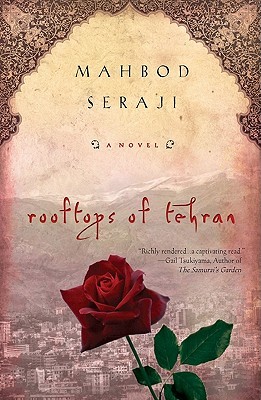More on this book
Community
Kindle Notes & Highlights
life was a random series of beautifully composed vignettes, loosely tied together by a string of characters and time.
“So,” Ahmed ponders one day, “the engine oil makes you an extrovert, and the horse urine helps you crawl back into your shell.” He shakes his head in empathy. “You are going to be one fucked-up person by the time your mother gets done with you.”
Showering friends and strangers with inflated but disingenuous compliments is a customary tradition in Iran called taarof, but looking into Doctor’s eyes, I don’t think he’s taarof-ing.
‘It is not the consciousness of men that determines their social being; it’s their social being that determines their consciousness.’
“Can you help me ring the bell to Iraj’s house?” Aboli asks innocently. “I can’t reach it.” My father says sure and rings the bell. The second the bell sounds, Aboli grabs my father’s hand and says, “Okay, now run!” My poor father suddenly realizes what he’s done. He lifts Aboli off his feet and starts running toward our house.
I’ve heard that people in the West, especially in the United States, seek therapy when they experience emotional traumas. Our therapist is time. We trust that time heals everything, and that there is no need to dwell on pain. We don’t seek psychological treatment because we’re not as fragile as the Westerners, or so we claim.
We bring solace to our hearts by displaying our emotions. When grief strikes, we do whatever it takes to our bodies to wring relief from our wounded souls, without apology or regret. We may beat ourselves, tear our clothes and scream our sorrows, and there is always company, as those around us share in our suffering by doing the same.
also said that all Persian movies follow the same generic plot in which the conflict is always between the poor and the rich, with the rich winning the battles, but losing the war.
Doctor used to say that these shows are designed to keep people preoccupied with “the irrelevant.” Their ability to entertain keeps their viewers from questioning anything, slowly but surely eroding their intelligence. He complained that these shows have caused the Americans to slip into a political coma. “They are tragically uninformed of their government’s unfair and oppressive behavior in other countries,” he always disapproved bitterly.
Doctor will not be issued a death certificate, and all documents pertaining to his birth will be destroyed. As far as the world is concerned, Doctor never existed.
“Yes, sir, because Americans are the most disciplined nation in the world!”
Crime, therefore, can be defined as an offense committed by an individual of inferior status in society. Punishment is a consequence forced on the perpetrator of the crime only if he occupies one of the lower steps of the social ladder.
I wonder how we can explain this national impulse to cheat. Maybe it’s more a matter of sharing than cheating.
I’m a Persian; we never believe anyone who says nothing is wrong. We’re the people of intuition. We feel, smell, and taste trouble from a hundred kilometers away. We’ve been conditioned to worry because our history is full of atrocities committed against us by ruthless rulers.
The Persian New Year, celebrated on the first day of spring,
“What good is life if you have to live without the person you love? I remember now. I didn’t have an incurable disease—I was in love. But then, love is an incurable disease, don’t you think?”
I bite the space between my thumb and index finger.
I mentioned the CIA’s successful 1953 overthrow of Mosaddegh, the only democratically elected prime minister in the history of Iran, and half of the class accused me of lying because “the American government just doesn’t do bad things like that.”


